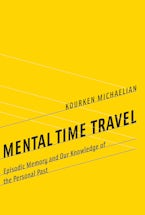Philosophers and cognitive scientists address the relationships among the senses and the connections between conscious experiences that form unified wholes.
In this volume, cognitive scientists and philosophers examine two closely related aspects of mind and mental functioning: the relationships among the various senses and the links that connect different conscious experiences to form unified wholes. The contributors address a range of questions concerning how information from one sense influences the processing of information from the other senses and how unified states of consciousness emerge from the bonds that tie conscious experiences together. Sensory Integration and the Unity of Consciousness is the first book to address both of these topics, integrating scientific and philosophical concerns.
A flood of recent work in both philosophy and perception science has challenged traditional conceptions of the sensory systems as operating in isolation. Contributors to the volume consider the ways in which perceptual contact with the world is or may be “multisensory,” discussing such subjects as the modeling of multisensory integration and philosophical aspects of sensory modalities. Recent years have seen a similar surge of interest in unity of consciousness. Contributors explore a range of questions on this topic, including the nature of that unity, the degree to which conscious experiences are unified, and the relationship between unified consciousness and the self.
Contributors
Tim Bayne, David J. Bennett, Berit Brogaard, Barry Dainton, Ophelia Deroy, Frederique de Vignemont, Marc Ernst, Richard Held, Christopher S. Hill, Geoffrey Lee, Kristan Marlow, Farid Masrour, Jennifer Matey, Casey O'Callaghan, Cesare V. Parise, Kevin Rice, Elizabeth Schechter, Pawan Sinha, Julia Trommershaeuser, Loes C. J. van Dam, Jonathan Vogel, James Van Cleve, Robert Van Gulick, Jonas Wulff












